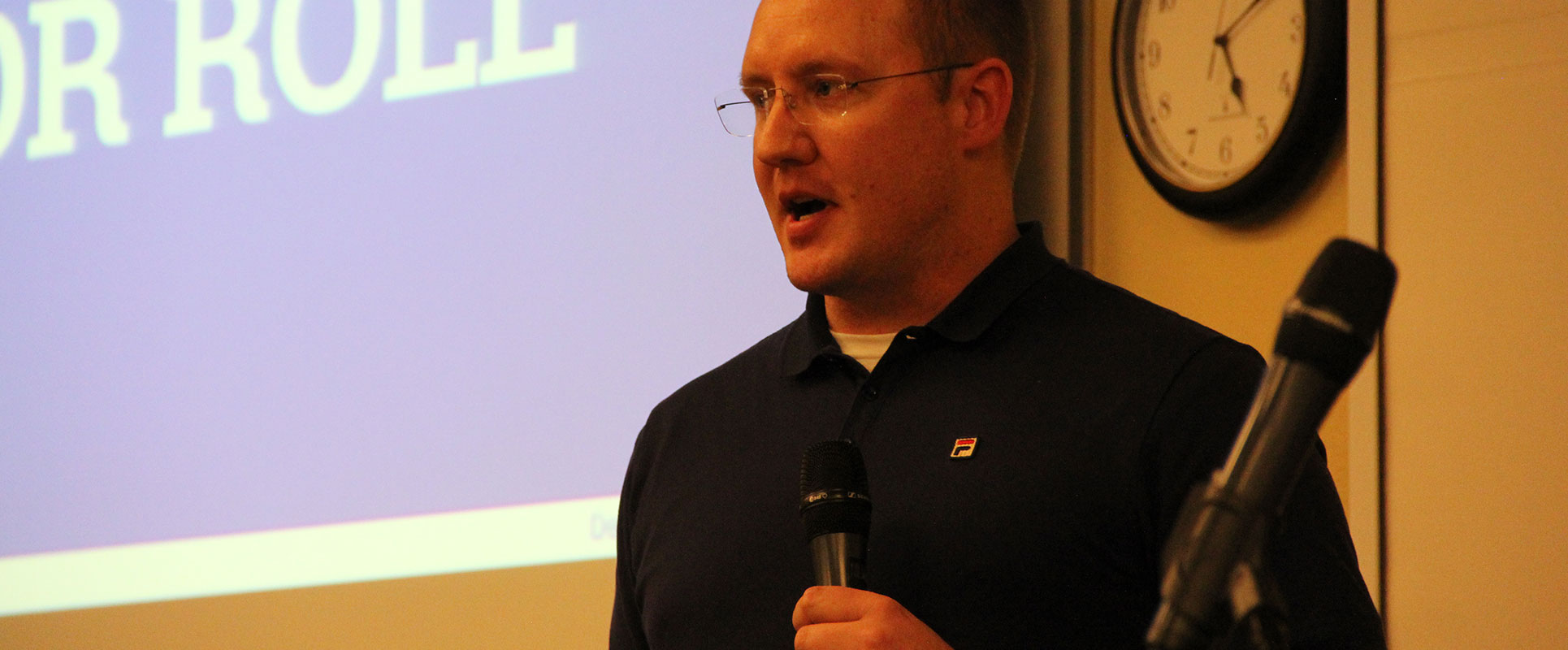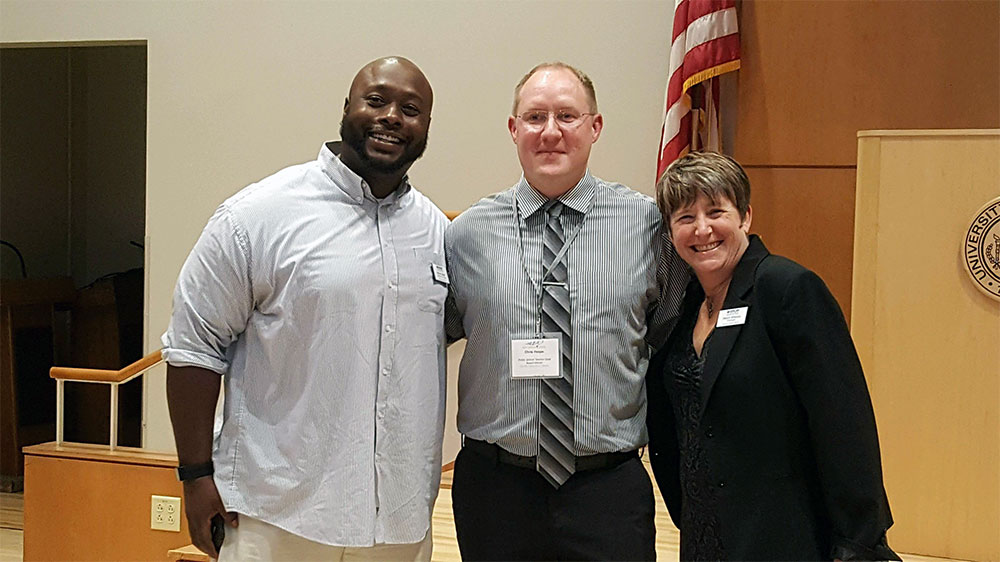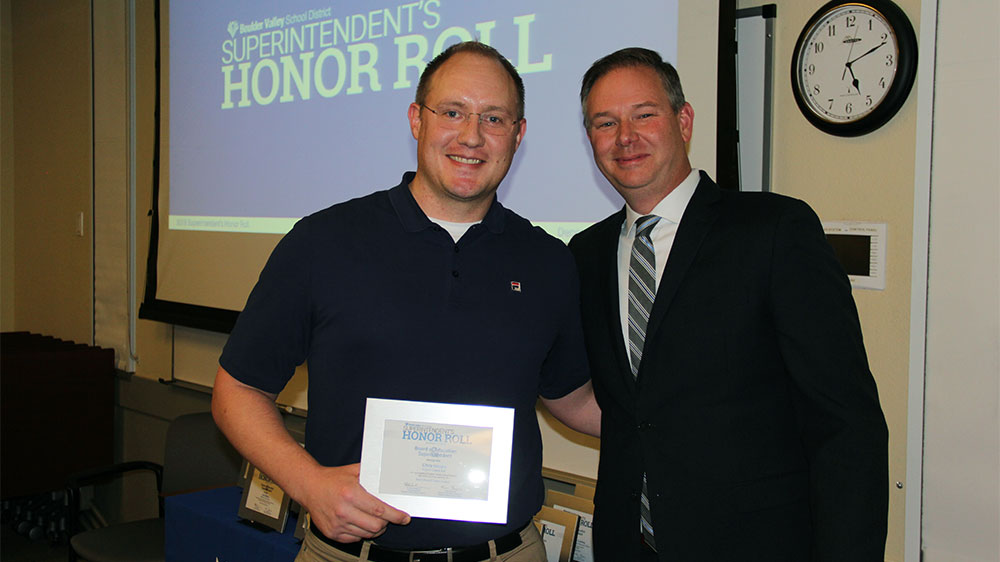


A job fair at Black Hills State University helped Chris Hespe land his first job offer in education. He taught at Lochbuie, near Brighton, Colorado, in a small K-6 school for five years following his 2003 graduation from BHSU.
Hespe says his principal at the time directed her efforts to BHSU year after year to recruit new teachers.
“BHSU has been on the right track with teaching for a long time,” says Hespe. “I was very well prepared by Black Hills State for the classroom.”
Originally from Belle Fourche, Hespe began his college career in Casper with the goal of becoming an architect. He transferred to BHSU when he switched to education. Running an afterschool program with Black Hills Special Services throughout college confirmed education was the right route for him.
Working now in the Boulder Valley School District, Hespe was nominated by administrators to receive the “Best Should Teach” award. He earned the award for his “embodiment of the beliefs, behaviors, and skills of exemplary teachers.” Only three teachers in the Denver metro area were chosen for this award.
Classroom observations and Hespe’s involvement in educational projects inspired his nomination.
 |
 |
Hespe is part of the Alliance to Teach the Legacy of the Atlantic Slave Trade (ATLAST), a program that connects current events to American history in regard to the African American experience.
“When kids examine and see what happens in the news – from protests to hate crimes in the U.S. – this provides a reference point for where things really started,” says Hespe.
Working with historians, Hespe led a group of elementary through high school students to South Carolina last year. They learned about the Gullah culture firsthand, about the legacy of African cultures and the people who have traditionally resided in the coastal areas and sea islands of America. The students went to the church where Dylann Roof murdered African Americans in 2015, talking with church members and those connected with the tragedy. They talked with local historians and politicians about how the movement of voting stations affects voter turnout.
“The kids came out of that experience with empowerment and a drive to make a change in the world,” says Hespe. “That has steered everything I do in my teaching.”

